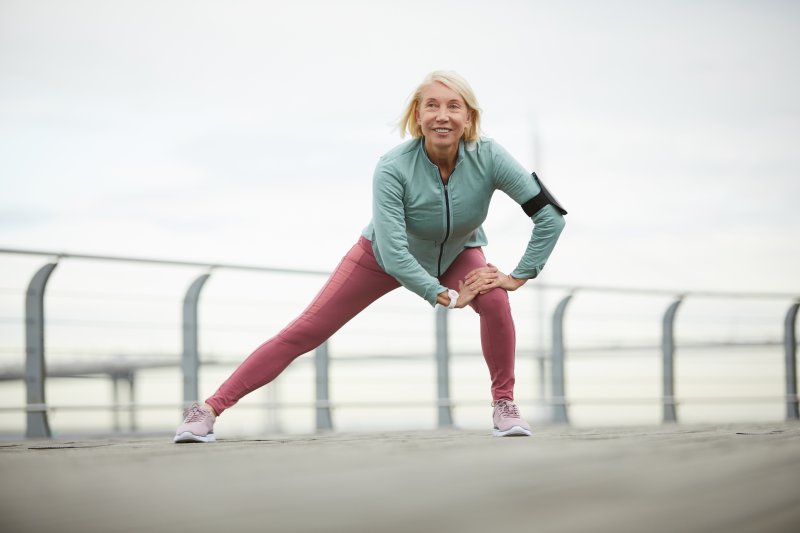
Many women know that the transition into menopause means a higher risk of several health issues, from heart disease to osteoporosis and more. However, a new study published by the North American Menopause Society (NAMS) found a link between postmenopausal joint pain and sleep apnea.
Sleep apnea is a sleep disorder in which breathing repeatedly stops and starts throughout the night, resulting in loud snoring, daytime sleepiness, morning headaches, and more. Sleep apnea can be life-threatening, with ties to heart disease, stroke, cognitive decline, and negative mental health. Additionally, as this study shows, it could be connected to day-to-day joint pain and a loss of mobility.
The Research
Researchers studied 51 postmenopausal women, leading to results that suggest there is a significant association between sleep apnea and joint pain, showing that a higher respiratory distress score (which is how the severity of a person’s sleep apnea is determined) may be linked to joint pain severity. The relationship may be cyclical, in that sleep issues can lead to joint pain, which can then make it even more difficult for someone to fall and stay asleep. Of these 51 women, 13.7% were diagnosed with obstructive sleep apnea (OSA).
The prevalence of sleep apnea in postmenopausal women is 4.5 times higher than in premenopausal women. Studies suggest that, in these cases, sleep apnea is triggered by a decreased in sex hormones in the body., Concurrently, it has also been found that hormone therapy has been shown to contribute to a decrease in sleep apnea in postmenopausal women. Many postmenopausal women also experience musculoskeletal joint pain, which is another health issue linked to this decrease in hormones.
Other Ways Menopause Affects Sleep and How to Manage
Aside from contributing to sleep apnea, menopause can also affect sleep quality in a number of additional ways. Poor sleep starts during menopause and can continue post-menopause.
So, what causes poor sleep in menopause? One of the most common sleep disruptors is hot flashes. The sensation of extreme heat is often unignorable, and can cause significant reductions in sleep quality as women are left tossing and turning, trying to cool down. Then, disrupted sleep causes daytime fatigue, which may lead to napping during the day or consuming more caffeine, keeping the cycle of poor sleep going.
For those in menopause and post-menopause, it is important to focus on ways to improve sleep quality, by getting regular exercise, seeing a professional about medication and hormone replacement therapies, and developing healthy bedtime routines.
Other tips for improving sleep hygiene include:
- Setting a designated bedtime and wake time
- Allowing for 7-9 hours of sleep
- Following a relaxing pre-bedtime routine
- Making sure the bedroom is a quiet, dark, and cold environment
- Reducing light exposure in the evening
- Avoiding screens before bed
- Reducing caffeine consumption, especially in the afternoon
What Women Can Do
It’s important to make an effort to decrease factors contributing to sleep apnea, as sleep apnea increases the risk for health issues such as hypertension, diabetes, cardiovascular disease, and dementia.
Existing sleep apnea treatments don’t directly address the joint problems covered in the study we shared, but they will help address the fatigue tied to menopause. Better sleep can encourage more physical activity during the day — increasing the strength of muscles supporting the joints, leading to less discomfort and stiffness. If you or a woman you know is experiencing severe joint pain, fatigue, loud snoring, and/or morning headaches, a sleep apnea screening may be worth exploring.
If you live in the Atlanta area, Dr. Jeff Rodgers can help with sleep apnea treatment. Using a small oral device that’s worn to bed, he can help you breathe better throughout the night and get the sleep you deserve. Request an appointment at Sleep Better Georgia today to learn more about oral appliance therapy.
